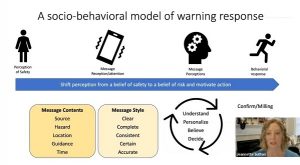Senate Finance Committee agrees on expanding mental health workforce
2 min read
Connie and Steve Ballmer, University of Oregon to launch project in Portland
Washington, D.C. – Sen. Ron Wyden (D-Ore.) and members of the Senate Finance Committee committee released a discussion draft of legislation aimed at expanding the mental health workforce to make it easier for Americans to get mental health care when they need it.
The senators also committed to pursue opportunities for public-private partnerships to help meet the nation’s mental health care needs.
“There is an enormous need all across the country for mental and behavioral health care, but there aren’t nearly enough providers to meet that demand. These proposals are about training new providers and finding opportunities to do more with the mental health workforce we already have,” Wyden said.
“I’m excited about what organizers of an innovative public-private partnership between the University of Oregon and Connie and Steve Ballmer are working on to build out. They are launching a four-year program in my hometown of Portland that has the potential to take a big bite out of the provider shortage we are seeing in Oregon and all over the nation.”
“This approach will be instrumental in solving this challenge by getting private contributions into the game and wringing more value out of taxpayer dollars,” Wyden said. “Both sides of the Finance Committee are committed to this mental health initiative—both addressing emergent mental health issues and building a foundation to provide mental health support in Oregon’s youngest.”
The discussion draft includes policies that would:
- Add 400 new physician residency positions funded by Medicare to teaching hospitals for training new physicians in psychiatry and psychiatry subspecialties.
- Update the Medicare guarantee by providing coverage of marriage and family therapist services and mental health counselor services for the first time under Part B of the Medicare program.
- Expand access to certain clinical social worker services under the Medicare program.
- Expand Medicare’s Health Professional Shortage Area bonus program to attract more mental health care providers to shortage areas, including many rural communities.
- Create a demonstration project to increase behavioral health provider capacity under the Medicaid program.
- Require Medicaid to produce new guidance to states on increasing the mental health workforce.
- Make it easier for patients to see psychologist trainees by providing flexibility in Medicare’s direct supervision requirements.
This discussion draft on the mental health workforce is the third legislative draft the Finance Committee has released since kicking off its bipartisan mental health initiative. The first, released in May, focused on telehealth policies. The second, released in June, focused on youth mental health.
Other discussion drafts may be released. The committee is committed to fully paying for any mental health package with bipartisan, consensus-driven offsets.
A summary of the provisions is available here.
The full text of the discussion draft is available here.







